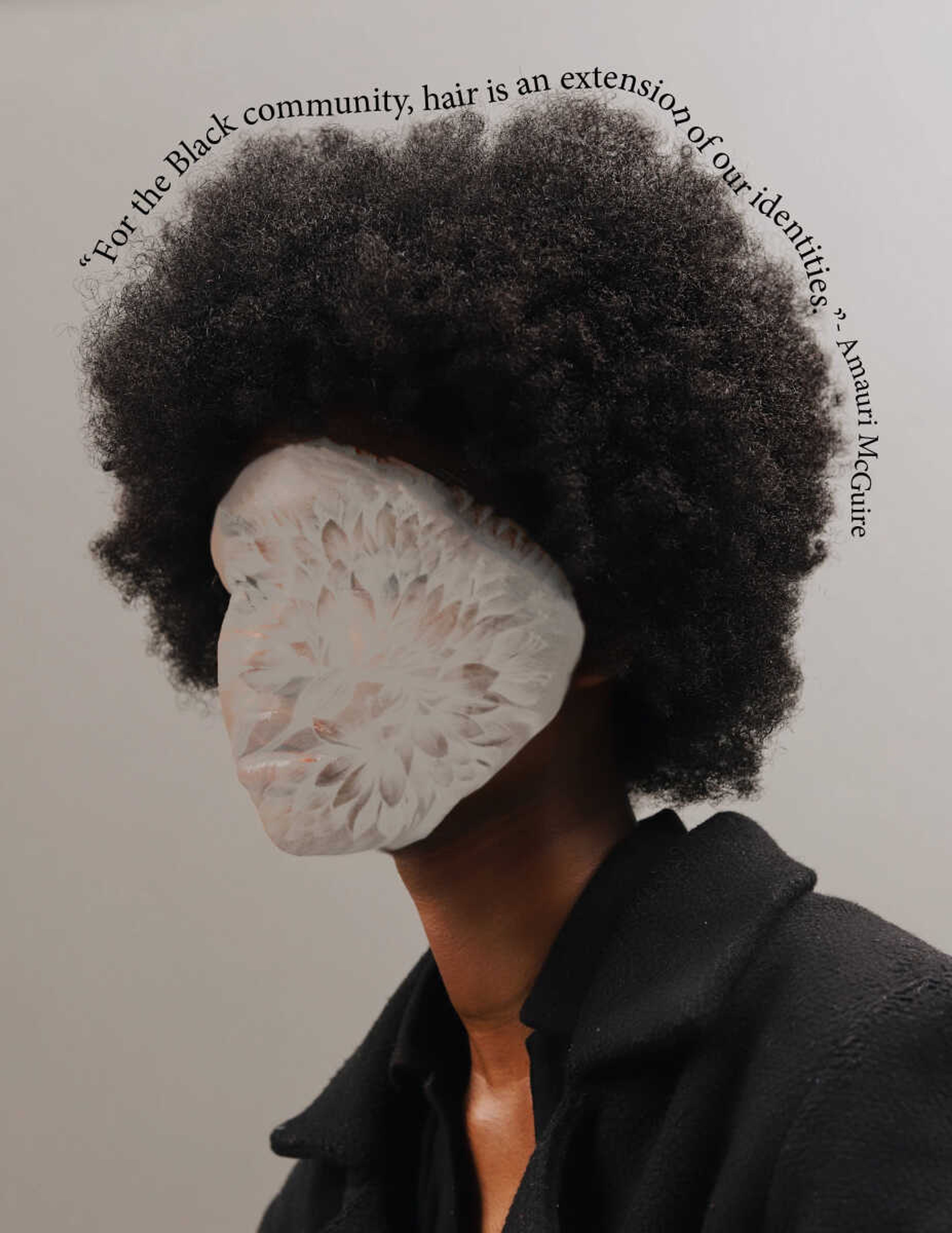Locs. Braids. Twists. All natural. Curly or wavy, short or long.
“For the Black community, hair is an extension of our identities,” former Southeast student Amauri McGuire said. “Not to say that our identities are completely wrapped in our hair, but at the same time, we take great pride in our hair.”
As a former musical theater student at Southeast, McGuire said he experienced conflict regarding his natural hair in ballet classes. His instructor required specific hairstyles, such as a tight bun, that McGuire said would have stretched or otherwise damaged his natural 4A and 4C hair types — terms used to classify hair textures — Afro. When he did not comply, McGuire said he experienced conflict in his class.
The United States House of Representatives passed a bill in mid-March to prevent discrimination based on hair texture and styles. The C.R.O.W.N. Act, short for Creating a Respectful and Open World for Natural Hair Act, especially protects people of color from race-based hair discrimination in the workplace.
Holland College of Arts and Media dean Rhonda Weller-Stilson said faculty members are working towards a more inclusive and conscious environment. That starts with open conversations in both the classroom and backstage, she said.
“I think as the years have gone along, we’ve realized we need to be more aware of who our performers are and need to change some of our policies,” Weller-Stilson said.
While ballet is traditionally rigid in its appearance regulations, she said the department is working toward adapting guidelines to make performers most comfortable. The industry is evolving to be more inclusive and conscious, she said, especially with students of color and transgender students.
The C.R.O.W.N. Act is an initiative launched by four Black women: Esi Eggleston Bracey, Kelli Richardson Lawson, Orlena Nwokah Blanchard and Adjoa B. Asamoah. The state of California made the C.R.O.W.N. Act law in 2019, and several states followed.
While there currently isn’t a similar law in Missouri, the Missouri House approved the C.R.O.W.N. Act on March 10, which will soon be followed by a Senate vote. Both Kansas City, Mo., and St. Louis have adopted it as law.
McGuire said he feels sad it took this long for the act to materialize.
“Our hair, unfortunately because of racism and things out of our control, was demonized and then commodified,” McGuire said. “So, with that being said, we had to do certain things other cultures didn’t have to do to either mask our hair, change our hair or make our hair look a very presentable way in the eyes of other people. With all of that being said, our hair became a very important way of how we identify.”
While Cape Girardeau hairstylist Tierra Baker said hair is an important aspect of many individuals’ identities, she emphasizes the importance of personality over appearance. A hairstyle — or tattoos, makeup and nails — should not overshadow a person’s professional qualifications, she said.
“I feel like hair doesn’t define how professional you are or how good of a worker you are,” Baker said. “Hair is hair, and people need to start looking past it and start looking at the actual person.”
Southeast student Mahala Pittman said she feels a strong connection to her hair, but often feels the need to change it to fit others’ perceptions.
“I would also be lying if I said I didn’t have to alter my hair to control the amount of racism I experience and to control my opportunities,” Southeast student Mahala Pittman said.
She grew up in a predominately-white small town and said she’s been told her hair is “too big” or “too nappy,” based on the texture of her natural hair. The term dates back to descriptions of enslaved peoples and historically has a strongly negative context, according to NPR. At other times, she said individuals have called her hair “exotic” and asked to touch it. She said she hopes the C.R.O.W.N. Act passes, so it protects Black women from this racism and “segregation” based on hair type.
When visiting medical practitioners, she said she’s especially aware of how she wears her hair.
“During job interviews, anything. Even in health care sometimes, I straighten my hair or wear wigs to increase the quality of health care, because doctors seem to care not that much about the health and wellbeing of Black people,” Pittman said.
For Pittman, hair is extremely personal and something she enjoys styling. She is also active in the theater department at Southeast and said she has not experienced any negativity in her academic pursuits at Southeast. However, she said she still often alters her hair based on others’ perceptions.
“As much as I love my hair, my country doesn’t, and I do have to damage my natural hair pattern to improve some of the qualities of my life living in an Eurocentric standard of beauty,” Pittman said.
While the C.R.O.W.N. Act passed through the U.S. House, it currently awaits the approval of the Senate. For more information on the act, as well as updates on the legislative process, visit the C.R.O.W.N. Act website.




